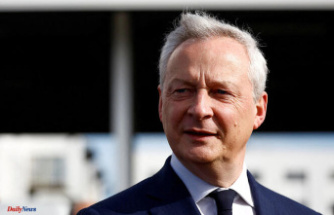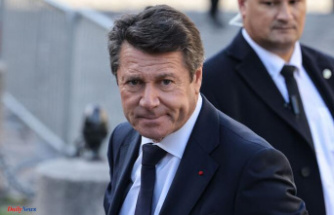After North Korea's recent missile launch in the direction of Japan, the answer is not long in coming. South Korean and American troops detonate several short-range ATACMS missiles. Observers expect Pyongyang to test nuclear weapons soon.
A day after the latest North Korean missile test, the US and South Korea fired missiles themselves in the region. South Korea's military said the United States and South Korea fired four ATACMS surface-to-surface missiles toward the Sea of Japan (East Sea) in response to North Korea's provocation.
On Tuesday, Pyongyang fired a medium-range ballistic missile toward the Sea of Japan. It was the first time a North Korean missile had flown over the Japanese archipelago in almost five years. Both the US and NATO strongly condemned the test. The European Union (EU) spoke of a "ruthless and deliberately provocative action.
In direct response, South Korean forces fired two precision bombs in the Yellow Sea. In addition, flight maneuvers were held together with US F-16 fighter jets. The Yellow Sea is bordered by China and the Korean Peninsula.
The last time North Korea launched a missile over Japan in 2017, the country conducted a nuclear weapons test just days later. According to North Korea expert Go Myong Hyun from the Seoul-based Asan Institute, the probability is currently also "very high" that North Korea could conduct a nuclear weapons test by the end of the month. Most recently, North Korea had tested two short-range ballistic missiles on Saturday - that was the fourth missile launch in a week.
UN resolutions prohibit North Korea from testing ballistic missiles of any range, which, depending on the design, can also carry a nuclear warhead. The United States has called on the UN Security Council to hold a session on North Korea on Wednesday. According to diplomats, China and Russia are opposed to a public discussion in the 15-member body.












